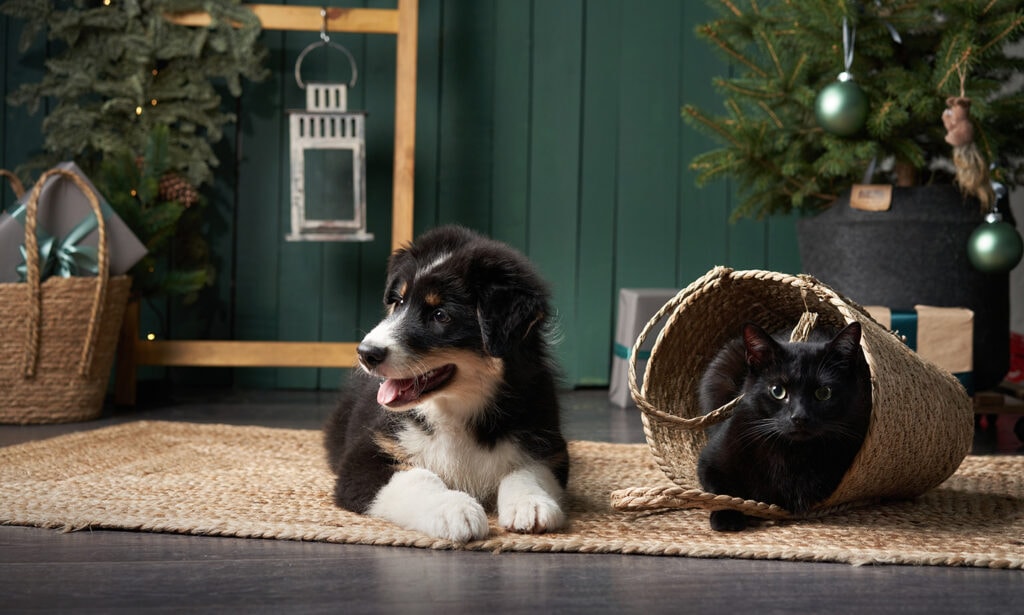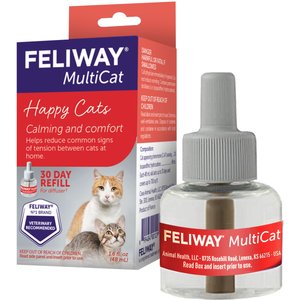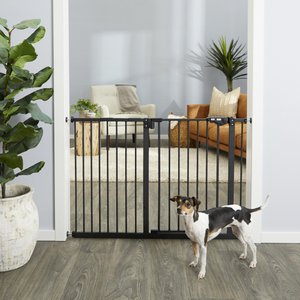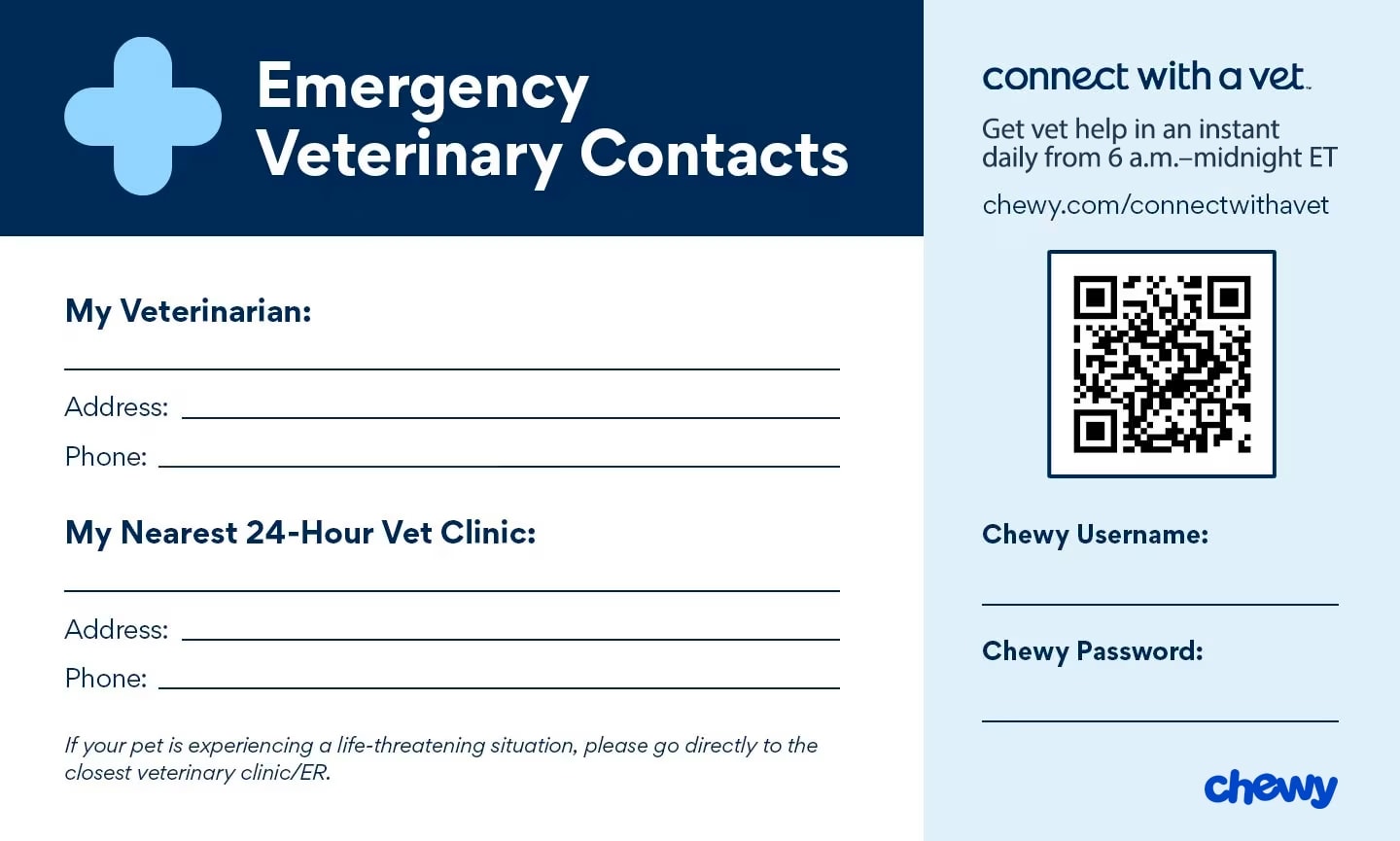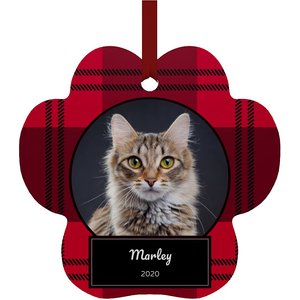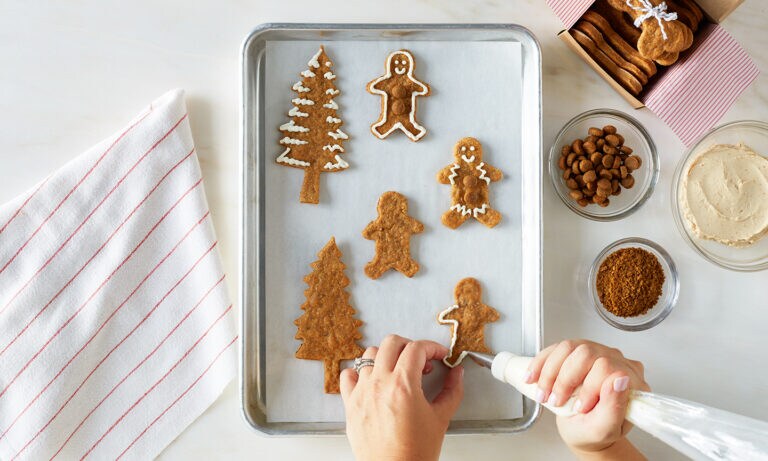While the holidays can be a fun time, they also present more opportunities for your pet to encounter things they shouldn’t. They can also be a stressful time for your pets, especially if new people and/or travel are involved.
To help your keep your pets healthy and happy, we talked to two vet experts—Courtney Deer, DVM, emergency and critical care veterinarian at 1st Pet Veterinary Centers in the Phoenix area; and Danny Sack, DVM, veterinary surgery resident at MedVet Columbus in Worthington, Ohio—to get their best holiday pet-safety tips.
6 Holiday Pet-Safety Tips
1. Keep These Dangerous Holiday Foods Away from Pets
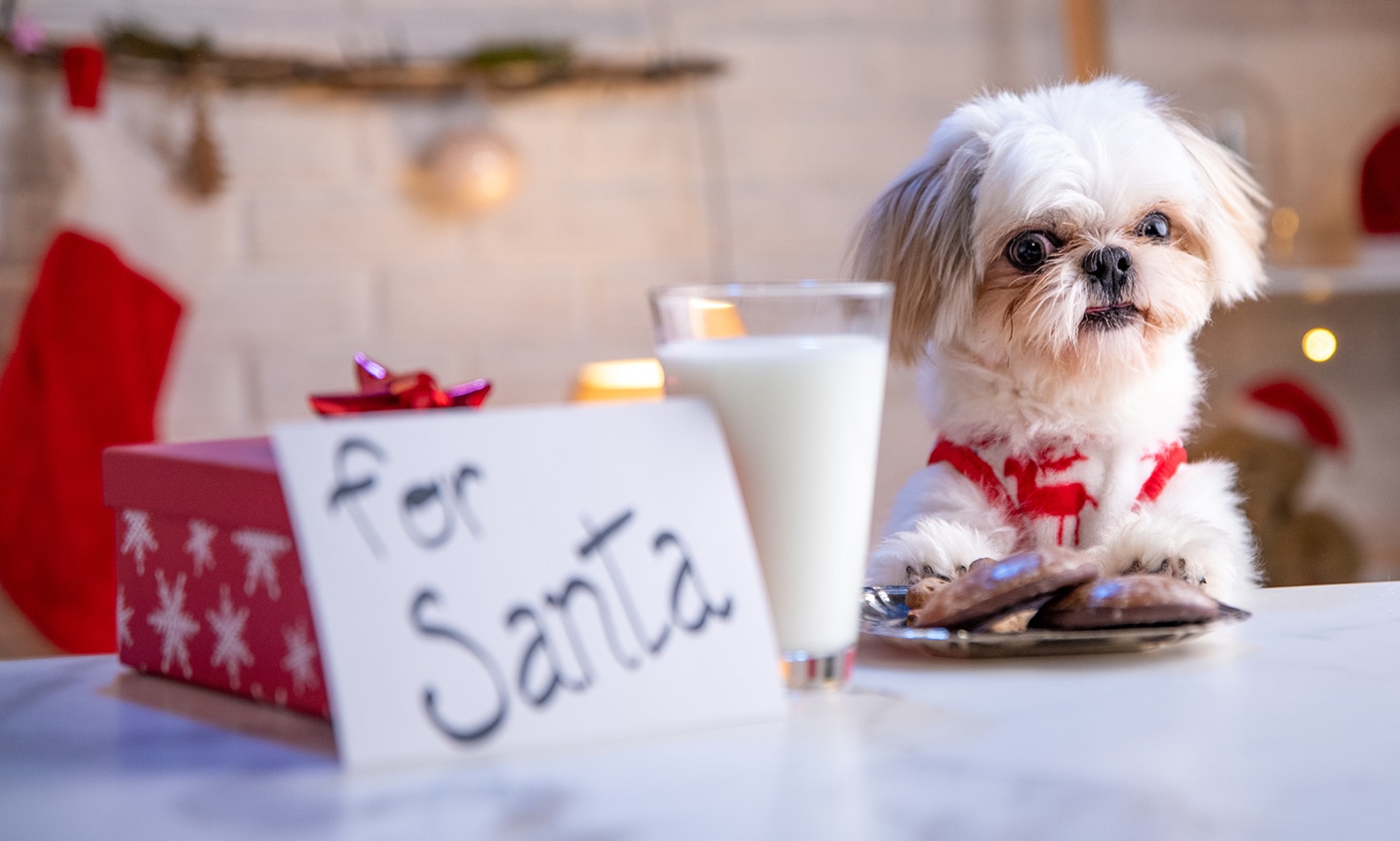
When you’re feasting with family, it’s tempting to sneak a bite (or several) of table scraps to your four-legged friends, but you must be discerning about what makes it under the table.
According to Dr. Deer, there are several holiday foods you shouldn’t feed your dog:
- Chocolate: Chocolate (especially dark chocolate) contains theobromine and caffeine, which can lead to gastrointestinal (GI) upset, agitation, tremors, and seizures at high doses.
- Macadamia nuts: The toxic amount isn't known, but pets can develop lethargy and vomiting in the short term. After several hours, they can have trouble walking.
- Fatty foods: Fatty foods like bacon, cheese, and ham can cause GI upset in pets and sometimes lead to pancreatitis in dogs.
- Grapes and raisins: Grapes and raisins can lead to kidney damage in dogs.
- Corncobs: Corncobs are a choking hazard and can cause an intestinal blockage, which can require surgery.
Dr. Sack says you also want to keep foods with the artificial sweetener xylitol away from your dogs. It’s common in sugar-free candies and gum, and can cause your dog’s blood sugar to drop to dangerous levels.
If your pets have eaten something they shouldn’t, the first signs will often be:
- Vomiting
- Diarrhea
- Stomach upset
If you see these signs, call the Pet Poison Helpline® at 855-764-7661 as soon as possible. They can help determine if the food or ingredient is toxic.
If your pet is vomiting, lethargic, not eating and/or develops other symptoms like trouble walking, weakness, etc., reach out to the local animal ER.
Christmas decorations and cats don’t mix, but dogs get curious too. That’s why it’s important to dog-proof or cat-proof your Christmas tree.
Dangerous Christmas decorations for pets include:
Christmas Tree Ornaments
Christmas tree ornaments are a common hazard for pets, according to Dr. Deer. Cats love to knock them off trees, and dogs will chew on them. Depending on what the ornament is made of, they can injure their mouth with the sharp pieces or get glass stuck in their paw if it's shattered.
A big Christmas pet-safety tip is to get shatterproof ornaments, and make sure to pick them up as soon as they drop on the floor.
Electrical Cords
Puppies may also be tempted to chew on the electrical cords for holiday lights, which can cause electrical shock. Keep the cords wrapped up and off the floor.
Tinsel and Ribbons
Cats can ingest tinsel or ribbons used for decoration, causing an intestinal obstruction that warrants surgery. In fact, this is one of the most common surgical emergencies Dr. Sack’s practice sees around this time.
If you have curious kitties, it’s best to skip tinsel and ribbon.
Holiday Plants
There are also lots of plants and flowers that can be poisonous to your pets. This list isn’t exhaustive, but here are some of the most common culprits Dr. Deer sees in her practice:
- Poinsettias: Poinsettias are mildly toxic to dogs and cats. They can lead to vomiting or irritation of their mouth.
- Azaleas: Azaleas are toxic to dogs and cats, and can cause vomiting, diarrhea, weakness, or cardiac failure.
- Lilies: Every single part of the lily plant is extremely toxic to cats and can lead to kidney failure. It’s best not to have them in your house at all if you have cats.
- Yew: Yew is toxic to dogs and cats, and it doesn't take much for a pet to become ill from ingesting it. Signs include shortness of breath and seizures in dogs and can even cause sudden death from acute cardiac failure.
If you think your pets have gotten into any of these plants, seek medical care immediately or call the Pet Poison Helpline. Take note of the plant your pet ate and how much they ate. The sooner a vet can intervene, the better the prognosis is, says Dr. Deer.
If you’re traveling, you’ll also want to make sure you and your pets are properly prepped. That doesn’t mean they won’t experience any travel anxiety, but here are some things you can do to make them as comfortable as possible.
For Car Rides
- Get a crash-test-rated kennel and/or harness for your dog. Deer recommends the SleepyPod® ClickIt.
- Bring water, and keep your pets hydrated through the drive.
- Stop in safe places for potty breaks; many rest stops have dog-friendly areas with potty bags. Bring a litter box if traveling with your cat.
- Feed smaller amounts of food the day of your travel if your pet gets car sick when traveling.
- Talk to your veterinarian about anti-nausea or anti-anxiety medications that can make the ride go more smoothly, if needed.
For Plane Rides
- Get your pet used to their crate beforehand. This will create a positive association with the crate so they're less inclined to stress, Dr. Deer says.
- Pack for your pet. Bring food, medication, and medical records.
- Talk to your veterinarian about medications for nausea or anxiety.
For any form of travel, always have your pets wear up-to-date ID tags.
Animals thrive on routine, so change can stress them out. If your pet is experiencing holiday anxiety, you may notice them:
- Panting
- Pacing
- Shaking
- Whining
- Vocalizing
- Hiding
- Eating less
But there are some things you can do to keep them as calm as possible. These include:
- Creating a safe space: If you're hosting a party, Dr. Deer recommends putting your pet in a safe, calm area away from guests.
- Keeping them occupied: Sack recommends using enrichment toys or lick mats that can keep your pet occupied and distracted.
- Adding calming effects: Pheromones, like Feliway® for cats and Adaptil® for dogs, and music can also help calm them down.
- Talking to your vet: If appropriate, your vet can also prescribe anti-anxiety medications.
Even if you’ve adequately pet-proofed your home, you still want to keep a close eye on things.
Watch your pets when they’re in the house to make sure they’re not getting into anything they shouldn’t. And keep watch over the escape routes too.
With people coming and going from your home and all the holiday hustle and bustle, your pets can slip out the door. Put up signs to keep the door securely closed, put up dog gates, and remind your guests if needed.
Make sure your pets are wearing their collars and ID tags. And it’s always a good idea to have them microchipped with updated information. That way, if they do get out and rescued by a Good Samaritan, they’ll be able to contact you directly.
Despite your best efforts, it’s still possible that your pets might get themselves into something they shouldn’t.
For these unexpected situations, the American Veterinary Medical Association (AVMA) recommends having the following numbers handy in case of emergencies:
- Your veterinarian's clinic phone number
- 24/7 emergency veterinary clinic (if different)
- Pet Poison Helpline: 855-764-7661
- ASPCA® Animal Poison Control Center: 888-426-4435
The holidays can be fun and joyous, but they’re also prime time for mischievous pets to get into things they shouldn’t. To keep your pets safe, follow these holiday safety tips, and keep them safe through the rest of the winter too.
This content was medically reviewed by Chewy vets.
More ways to have a fun and safe holiday season with your pet:
Share:
